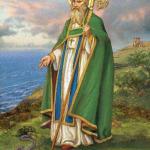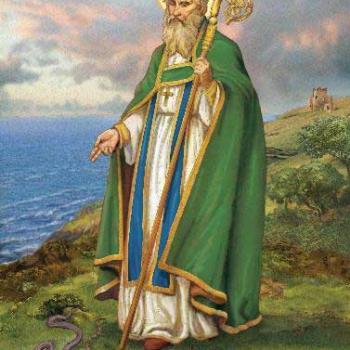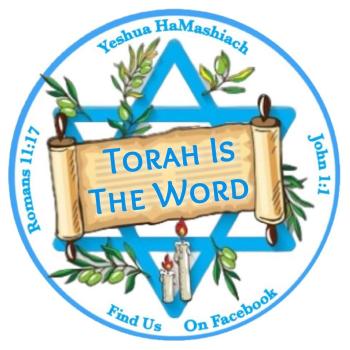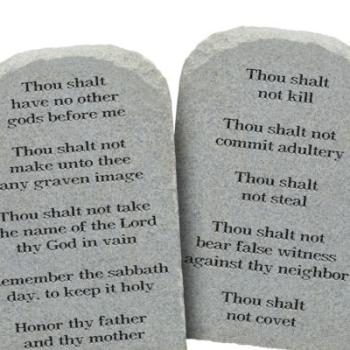Shalom! Welcome to Torah Is The Word’s study of Passover.
Preface:
We begin our Passover study series with a look into Exodus 12, where we see the original Passover story and the commands on how to keep it.
Of course, in Christ, we no longer need to paint our doorposts with lamb’s blood, as Christ shed His blood for us on the stake. However, the Lord’s Appointed Times are Forever, and even Jesus (Yeshua) tells us to keep the Passover in remembrance of Him. Jesus kept the Passover. Many argue He did not, that the “Last Supper” was a “pre-Passover meal,” or a feast of the first born, which was kept by certain religious sects and was a man-made tradition of those cultures. But Christ called out many of man’s traditions, He did His Father’s will, and He lived according to Scripture. He was our example on how to live righteously, for example, how to keep such things as the Sabbath and Passover.
Jesus kept a Passover meal according to the original commands set forth by the Lord in Exodus 12. This series on Exodus will demonstrate how it was the Passover Jesus kept.
I have put a lot of time and prayer into these studies, but I still could have missed some points, and posting studies like this is a way to open the lines of discussion, get folks thinking and talking, and, hopefully, we can all grow in our spirit and learning!
I hope you all enjoy and, please, share, as well, to our mainstream Christian friends…. It may spark some curiosity and plant some seeds!
The First Passover – Exodus 12:6
Tradition holds that 14 Nisan is the day the lambs are slaughtered and preparations are made for the Passover meal to be eaten on the first day of Unleavened Bread, 15 Nisan. But is that what scripture says? Is that what the Lord commanded?
Exodus 12:6:
On the fourteenth day of the first month, at twilight, each household slaughters their lamb.
Study:
Exodus 12, Leviticus 23 and Numbers 9 all specifically say the lamb is slaughtered at twilight opposed to evening, which is mentioned in Exodus 12:18 and is ereb in Hebrew and most commonly refers to “at sunset,” or the “end of the day.”
Twilight is ha arbayim in Hebrew, or “between the two evenings,” and, according to Strong’s Concordance, most usually refers to the time between sunset and dark. As days began at sundown, twilight would be the time beginning the fourteenth day.
Twilight and evening are two distinct times of day. And Hebrew, as we see, has two different words for them. In Exodus 12:6, the word for dusk//twilight (ha arbayim) is used. In Verse 18, the word for evening (ereb) is used. This is a differentiation. Twilight is defined as the “still light moments that follow sunset, just before total darkness.” This has been an understandingof twilight for centuries. So, when the Lord commands the slaughtering of the lamb at twilight on 14 Nisan, it is during the time that immediately follows sunset when the lamb is killed, which is the first minutes of 14 Nisan.
Further study on “The Time Between Two Evenings”
Ben ha arbayim is taught to refer to the afternoon hours leading up to sunset. This is a rabbinical misinterpretation that has led to a traditional, not scriptural, keeping of Passover. There is evidence that ben ha arbayim was a common idiom and is best translated “at dusk” or “twilight,” which is the time directly following sundown. It does not refer to any daylight our. If we look at the JPS (Jewish Publication Society) version of the Tanakh, a translation written by Jews for Jews, we Exodus 12:6 reads:
…and ye shall keep it [the lamb] unto the fourteenth day of the same month; and the whole assembly of the congregation of Israel shall kill it [the lamb] at dusk.
The NASB, known as the most accurate literal translation, as well as the NKJV and a couple others, translate ben ha arbayim as “twilight,” which is defined as the time between sunset and darkness.
Also, there are ordinances that must be done to the Passover lamb on 14 Nisan, from slaughter to burning leftovers before morning. These things cannot all be completed on the fourteenth day as commanded, especially the burning of the carcass before morning if the time mention in Exodus 12”6 refers to the afternoon hours, between 3pm and 6pm, as rabbinical tradition has falsely claimed for centuries.
Ben ha arbayim mean “at dusk/twilight,” and since a day begins at sundown, refers to the start of 14 Nisan, not the end transitioning into 15 Nisan.
Part 2: Exodus 12:8: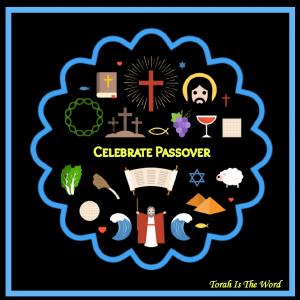
Verse 8 reads: They shall eat the flesh that same night, roasted with fire, and they shall eat it with unleavened bread and bitter herbs.
Study:
Night here is layil or layelah and, according to Strong’s, means “on this night” and refers to “the night which is being spoken of.” In this context, 14 Nisan. So, the lamb is slaughtered at twilight, in the first moments of the fourteenth day, and the lamb is eaten that same night, not the next night/day.
Part 3: Exodus 12:12:
The verse reads: For I will go through the land of Egypt on that night, and fatally strike all the firstborn in the land of Egypt, from the human firstborn to animals; and against all the gods of Egypt I will execute judgments—I am the Lord.
Study:
The Lord will go through the land (Egypt) that night and fatally strike down all the firstborn. Again, night is layil and refers to on the same night the lamb is slaughtered and eaten – 14 Nisan.
Part 4: Exodus 12:29:
The verse reads: Now it came about at midnight that the Lord struck all the firstborn in the land of Egypt, from the firstborn of Pharaoh who sat on his throne to the firstborn of the captive who was in the dungeon, and all the firstborn of cattle.
Study:
At about midnight, the Lord passed through Egypt and, during the night, Pharaoh called for Moses and Aaron and demanded they take all their people and animals and leave Egypt. Midnight is chatasi and means half or middle, and does not mean 12a.m. It is the middle of the dark hours. So, still on 14 Nisan, the Lord did as He said and fell all the firstborn in Egypt, prompting Pharaoh to finally let the Israelites go.
Part 5: Exodus 12:22:
The verse reads: And you shall take a bunch of hyssop and dip it in the blood which is in the basin, and apply some of the blood that is in the basin to the lintel and the two doorposts; and none of you shall go outside the door of his house until morning.
Study:
No one shall leave his house until morning, which in Hebrew is boker and means day break. Verse 31 says after the Angel passed over, Pharaoh called for Moses and Aaron in the night. But did Moses and Aaron break this command and go at once, or did they wait until morning? Scripture doesn’t say, but we can safely assume these men did not break God’s ordinance and, therefore, the exodus from Egypt did not begin until after dawn on 14 Nisan. Verse 50 reads, on that day the Lord led His people from bondage.
In conclusion: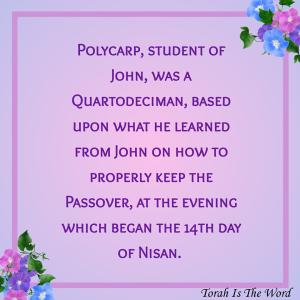
Passover is a distinctly different day from the first day of Unleavened Bread with its own set of ordinances and commands. God is very clear in those commands that everything to do with Passover is completed on Passover.
When Jesus, who always did the Father’s will, prepared for what we now know as “The Last Supper,” He sent Peter and John to prepare the Passover (Luke 22:8). In Luke 22, Jesus also tells the disciples He was eager to eat the Passover with them before His suffering began. Jesus tell us point blank, He kept the Passover, and He tells us to keep it in remembrance to Him.
Then why were the Jews preparing for Passover when He was crucified the next day? Because a day begins at sundown, Jesus and the disciples kept the Passover meal just as Scripture demands, at twilight on 14 Nisan, or the start of the new day, and in the following day light hours, which were still 14 Nisan, He was crucified.
For centuries after Jesus ascended back to heaven, the churches of Asia Minor, those planted by men such as John and Paul and Barnabas, kept Passover just as Jesus did. These people became known as Quartodecimans. Polycarp, a student of John, was a Quartodeciman because, as he explained, it’s how he learned to keep Passover from John, who, of course, walked with Jesus.
Pope Victor I made motions to change the observance of Christ’s sacrifice from a Passover one to an Easter one, putting emphasis on the first day resurrection. Victor threatened to excommunicate the churches of Asia Minor if they did not comply, but led by men like Polycarp, they stood against the Pope. Such Quartodeciman observances remained into the fifth century and were kept even by men like Saint Patrick who were part of the Celtic Church.
So, if we know Jesus’ last supper took place at the start of 14 Nisan (in the dark hours) and He called it the Passover, and we know men like John taught others to keep it the same way in remembrance of Christ, then why do so many Christians keep Easter Sunday, and why do even those who choose to keep Passover, continue to do so according to Jewish Tradition?
Hope you enjoyed this study. Stay tuned for other similar articles coming soon!
Shalom!


